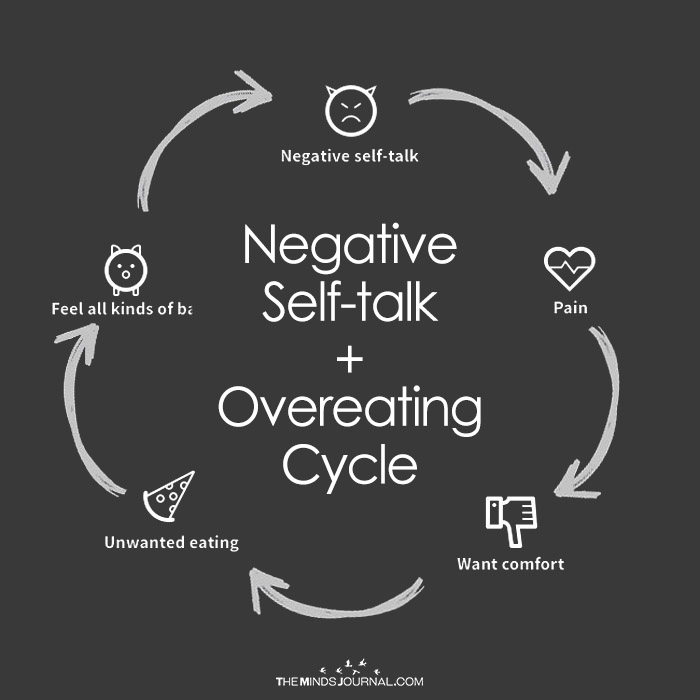Overeating is a problem which many people have to deal with. One of the major factors which lead people to overeat is their inability to recognize when one is actually hungry.
Several other factors which make people tend to overeat are emotional eating as a coping mechanism, stress eating, eating to alleviate boredom, and sometimes, there are eating disorders in the mix.

This article will help you train your brain to resume normal eating habits. But keep in mind, this article is not a substitute to a medical advice. And if you feel that your problem is severe.
You should consult a medical professional for your afflictions.
5 Ways To Train Your Brain To stop Overeating

1) Rate Your Hunger.
One really powerful way to stop overeating is to rate your hunger on a scale of one to five. One being full and five being on the brink of starvation.
If you rate your hunger, you will realize that barring exceptional circumstances, you are never starving. This will help you make smart decisions regarding your food choices and their portion size.
Related: Your Very Own Ayurvedic Guide For Eating The Right Way!
2) Identify The Signs Of Hunger.
The most prominent signs of hunger are feeling light headed and your stomach making growling sounds.
If these identifiers present themselves, it can be a sign of your body signaling to you that its needs are not being fulfilled and you should probably consider eating when those happen. But, if the signs of hunger are not there, you might be overeating.
3) Identify Your Emotional State.
Being aware of your emotions and how they dictate your eating choices is a great way to check to overeat. The brain sends signals to your body and craves certain ‘comfort foods’ especially when you are feeling a little down.
Knowing how your emotions affect your food cravings may help you stop overindulging yourself on the behest of such cravings. One way to identify the emotional state is to have a note written on the refrigerator to stop and check how you are feeling.
Related: Mindful Eating: Breaking the Emotional Cycle
4) Notice When You Are Overeating.
Food is essential for our survival as a species, but sometimes we fail to realize the fact that we have eaten our fill and are veering into the territory of overeating.
Health Education Research, a journal published a study that showed that self-efficacy can help you overcome the problem of overeating. By thinking of those times when you overcame the urge to overeat will eventually make your brain accept the fact that you can control your problems.
5) Notice How Marketing Influences Overeating.
Brian Wansink, who wrote Mindless Eating, mentions in the book that the whole world is conspiring to make us mindlessly consume via marketing strategies. Our brain also uses some covert ways to influence our eating patterns and habits, which include packaging of an item, colors of the food item, portion sizes, etc.
He also mentions that there are two reasons for our overeating. The first one being, not only are we influenced in our decision about what to eat, but also about how much to eat.
This can be checked if we actually listen to our bodies and not leave this out for the favor of licking the plate clean. If you have a habit of not stopping until the plate is empty, one clever way is to use plates that are smaller in size.
This will promote optimum portion sizes and will force us to listen to our bodies. The same principle applies to packaged food like chips. If you cannot stop until you finish off a packet, buy smaller packets to limit eating and prevent overeating.
The second reason for our overeating is our inability to realize when we are full, that is, we are no longer hungry. Brian’s team set up a fake restaurant and stocked it with soup bowls that guests were told not to pick up.
The soup bowls were of two types, one was a normal soup bowl and the other was a trick soup bowl which made people believe that the bowl has not been finished.
Brain found out that those who had been given the trick bowls ate around seventy percent more than those who were given a regular soup bowl.
Related: What is a Food Empath? 6 Ways To Reduce Stress and Overcome Food Addictions
Upon asking, all of them had a similar response somewhere along the lines of them not being full because they had eaten only half the bowl and they could not possibly be full having eaten half a bowl of soup.
So, these are some of the tricks you can use to stop yourself from overeating. Try these out, and let us know your thoughts in the comments down below!
The Minds Journal Articles Volume -1 is Copyright Protected vide Regd.# L-103222/2021
Frequently Asked Questions
Is there an eating disorder where you drink a lot of water instead of eating to make yourself feel full?
Anorexia Nervosa patients sometimes run a risk of water intoxication by drinking too much water in order to make themselves feel full.
Do people with eating disorders gain weight faster than someone who doesn’t have an eating disorder?
People struggling with eating disorders such as Bulimia Nervosa and Binge Eating Disorder might gain weight at an alarming rate due to their unhealthy eating habits.
When eating diuretic foods how long do they stay in your system?
It usually takes 30-75 hours for diuretics to be completely removed from your system, while the effects of diuretics might last up to 12 hours.
Can your body go through withdrawal symptoms when going from a poor diet to a healthy diet?
Yes, dietary changes can bring on sugar cravings along with headaches, depression, anxiety, irritability, and other withdrawal symptoms.












Leave a Reply